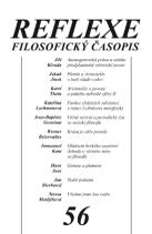The Reincarnating Soul between the Presocratics and Plato
The article focuses on the development of the conception of the reincarnating soul between the Presocratics and Plato. Empedocles and Philolaus are the two Presocratic thinkers who professed reincarnation and whose work is preserved sufficiently well in order to place their doctrine of the soul into the appropriate philosophical and cosmological context. Although according to them the soul passes over from one body into another, it seems that both consider it to be a „material“ entity, that is, composed out of the four elements or identical with a harmony subsisting in a material substrate. In the Phaedo Plato reacts against the previous psychological conceptions, apparently similar to the ones held by Empedocles and Philolaus, since Plato considers them insufficient to ground the immortality of the soul. He, in turn, proves the soul’s immortality by assimilating the soul to the transcendent and immaterial Forms. The article also considers the implications of the distinctions, introduced only by Plato, between material and immaterial, or transcendent and immanent, as they have influenced and still influence our understanding of the early Greek philosophical concepts.
Backlinks: Reflexe 38
